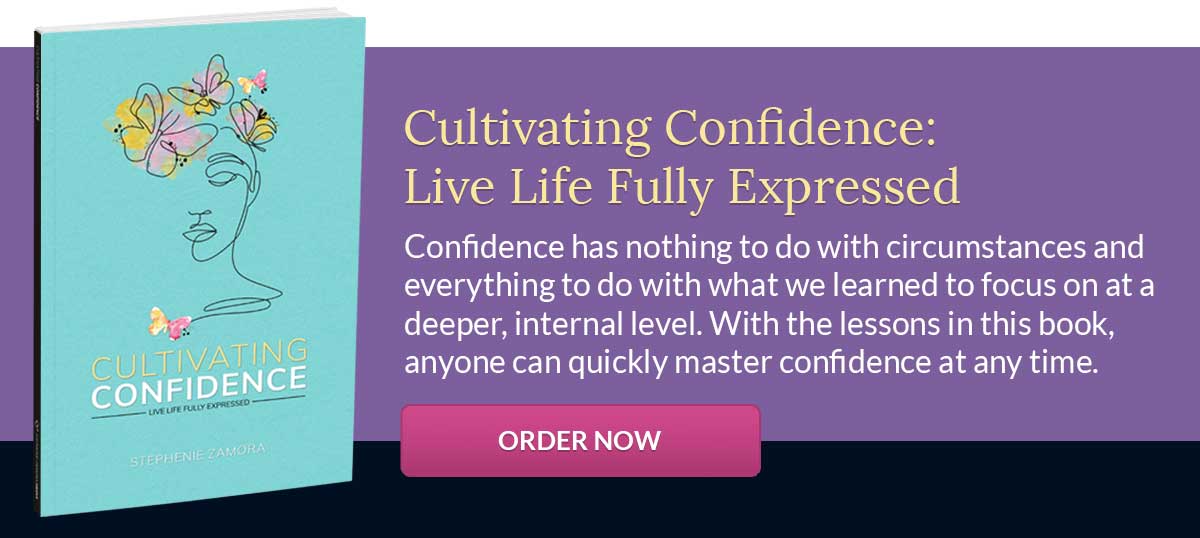The Difference Between Self-Esteem, Self-Worth, and Self-Confidence

Ever feel like you’re not good enough, or that you’re not living up to your potential?
That’s a sign that you may be lacking in self-esteem.
Self-esteem is the belief that we are worthy of love and respect.
It’s the foundation of our happiness and well-being.
In this post, we will discuss the difference between self-esteem, self-worth, and self-confidence, and why it’s important to work on all three. I’ll also provide tips for how you can start building up your self-esteem today!
What’s the difference between self-esteem, self-worth, and self-confidence?
Self-esteem is whether you feel worthy of love and respect.
Self-esteem is one’s overall evaluation or appraisal of their worth. It’s the decision made about oneself, positively or negatively. People with high self-esteem have a generally positive view of themselves, while people with low self-esteem have a negative view of themselves.
Self-esteem is important because it affects how we see and interact with the world around us. People with high self-esteem are more likely to take risks, be successful, and cultivate happiness and fulfillment in their lives. People with low self-esteem are more likely to have anxiety and depression.
There are a few signs that someone might have low self-esteem. For example, they may put themselves down, compare themselves to others, or have negative self-talk. They may also avoid new situations or opportunities because they don’t feel like they can succeed. Additionally, they likely don’t take very good care of themselves or their life because they don’t hold themselves in high regard.
If you think you might have low self-esteem, start here:
1. Think more positive thoughts and compliment yourself often.
It’s so important to think positively about yourself because it really does raise your self-esteem. Something as simple as saying “I did a great job!” can help improve the way you feel about yourself. Some more examples include:
- “I’m really proud of myself for _____.”
- “I did a great job on _____!”
- “I’m really happy with how _____ turned out.”
Take a few minutes each day to think of something you can compliment yourself on. It’ll make a world of difference in how you feel about yourself and your worth.
2. Set realistic goals and prioritize achieving them.
When you set a goal for yourself and achieve it, you’ll feel a sense of pride and accomplishment, which can help you respect and value yourself more. Some examples of realistic goals you can set include quitting a bad habit, finishing a project you’ve been procrastinating on, taking a positive step toward your career goals, or reaching a fitness milestone on the way to a bigger goal. Whatever goal you set for yourself, make sure it’s something you know you can accomplish. You’ll be more likely to stick with it and feel good about yourself when you reach it.
3. Take care of yourself physically and emotionally.
One of the most important things you can do for yourself is to take care of yourself physically and emotionally. When you take care of yourself, you’re automatically raising your self-esteem. You’re showing yourself that you’re worth taking care of and that you deserve to be respected.
Some examples of taking care of yourself physically includes eating healthy, exercising, and getting enough sleep. Taking care of yourself emotionally includes managing your stress, setting boundaries, and practicing self-compassion.
If you want to raise your self-esteem, show yourself that you are worth taking care of and that you deserve to be respected and valued. You’ll be amazed at how much better you feel about yourself when you start taking care of yourself.
4. Spend time with people who make you feel good about yourself.
The people who raise your self-esteem are the ones who make you feel good about yourself by helping you feel valued and appreciated. They make you believe you matter because you clearly do to them. And when you feel good about yourself, your self-respect, self-worth, and self-confidence go up too.
So how do you find more of these people in your life? Well, it starts with letting go of the ones who treat you poorly and make you feel bad about yourself. If someone is constantly putting you down, making you feel small, or making you question your worth, it’s time to let them go. You don’t need that kind of negativity in your life.
Instead, focus on spending more time with people who make you feel good about yourself. These could be friends, family members, coworkers, or even strangers. Anyone who makes you feel appreciated and respected is worth your time and energy. When you surround yourself with people who raise your self-esteem, you’ll start to feel better about yourself and your life overall. And that’s a great way to boost your self-confidence and self-respect.
5. Focus on your strengths, not your weaknesses.
One way to raise your self-esteem is by focusing on your strengths rather than your weaknesses. When you focus on what you’re good at, it naturally boosts your confidence and makes you feel better about yourself.
Some examples of strengths to focus on and celebrate include being a good listener, being patient, having a great sense of humor, being a quick learner, and being creative. Plus, any perceived shortcomings can be seen as opportunities for growth if they’re important to you. For example, if you’re not the best at public speaking, you can view it as an opportunity to practice and improve. Not everyone is born a natural public speaker, but with practice, anyone can become good at it. That said, not everyone cares about being a great public speaker, so it requires discernment about what’s important to you.
It’s essential to focus on your strengths because they’re what make you unique. Nobody is perfect, and everyone has things they’re not great at. But it’s your strengths that make you who you are and set you apart from everyone else. So embrace them and let them shine!
Now that you understand self-esteem, it’s important to do things that signal high self-esteem each day!
It’s important to do things that raise your self-esteem on an everyday basis because it communicates your self-respect and how highly you value yourself. When you have high self-esteem, you believe in your own worth and you don’t allow others to control or take advantage of you. You’re also more likely to take care of yourself and make choices that are good for you, instead of harmful choices. So, raise your self-esteem each day by doing things that signal how highly you value yourself!
Self-worth is how much you value yourself and how deserving you feel.
Self-worth is how you value yourself. It’s an inner sense of worthiness and belonging that’s independent of what others think or say about you. Achieving healthy self-worth is essential to your overall well-being. It’s the foundation for a positive mental attitude, successful relationships, and fulfilling life.
Unfortunately, many people go through life with low self-worth.
This can be the result of messages received during childhood, such as “you’re not good enough” or “you’ll never amount to anything.” Low self-worth can also be the result of negative life experiences, such as being bullied, discriminated against, traumatized, or physically and emotionally abused.
If you have low self-worth, it can affect every aspect of your life. You may find it difficult to make friends or maintain healthy relationships. You may also struggle to achieve your goals and reach your full potential.
Fortunately, there are things you can do to raise your self-worth.
Here are some tips:
1. Acknowledge how valuable you are.
Acknowledge your value by taking inventory of your accomplishments, skills, and talents, especially the things you love the most about yourself, even if no one else appreciates them (yet!). Knowing your value is essential to developing a healthy relationship with yourself and feeling deserving of good things. A big part is knowing your self-worth and believing in your abilities. When you know your value, you’re more likely to feel confident and become successful in all areas of your life (in the ways that you feel it’s important to “be successful” in your life).
2. Practice self-love and self-care.
Self-love and self-care are two important concepts that often get confused. Self-love is about accepting and loving yourself for who you are, while self-care is about taking care of yourself physically, mentally, and emotionally. It’s important to practice self-love and self-care because they both help raise your self-esteem, self-worth, and self-confidence.
Some examples of self-love include accepting yourself for who you are, setting boundaries, and taking time for yourself. Some examples of self-care include getting enough sleep, eating healthy foods, and exercising regularly. By practicing self-love and self-care, you can raise your self-worth and sense of deservingness quickly.
3. Set goals from a place of worth and deservingness, not a sense of expectation or obligation.
It’s not uncommon for people to want what others have. Whether it’s the newest gadget, the trendiest clothes, or the latest hairstyle, we often find ourselves coveting what someone else has. And while there’s nothing wrong with admiring someone else’s possessions, when it comes to setting goals, it’s important to focus on what you want, not what others have.
When you set goals based on what you want, you’re more likely to achieve them because you’re motivated by a personal desire to attain something. On the other hand, if you set goals based on what someone else wants you to do, it’s easy to get sidetracked or lose motivation altogether. What’s more, setting goals based on what you want is a way of showing yourself that you’re worthy of achieving great things. It’s a way of boosting your self-esteem and raising your self-worth. When you set goals based on what someone else wants you to do, you’re essentially telling yourself that their opinion of you is more important than your own.
So, if you’re looking to raise your self-esteem and raise your self-worth, focus on setting goals based on what you want. Here are some examples of high self-worth goals: I’ll start my own business, get a promotion at work, lose 20 pounds, learn a new language, or travel to five new countries… because it’s important to me. Focus on what you want and go after it with everything you’ve got! You deserve it.
4. Avoid people and situations that make you feel bad about yourself.
A huge step to raising your self-worth is recognizing people and situations that make you feel bad about yourself. It’s important to avoid these!
There are many warning signs that someone or something is not good for you. If you feel like you’re always being compared to others, or if you feel like you’re not good enough, these are red flags. If you find yourself in a situation where you constantly feel small or bad about yourself, it’s time to take action. Remove yourself from the situation and cut off contact with the person or people making you feel this way. This is a strong signal to yourself that you value yourself and your happiness.
When you take these steps, you’ll start to see a difference in how you feel about yourself. You’ll be more confident and have higher self-worth. Do what’s best for you and your well-being!
5. Heal your past traumas.
You might be thinking, “I don’t have any trauma! I’ve never been abused or anything!” If you’ve never experienced any major trauma or loss, then consider yourself lucky. However, even if you haven’t experienced any life-shattering events, it’s still very possible that you have unresolved trauma.
Trauma doesn’t always come in the form of a major event. It can also be caused by more subtle things, such as growing up in a chaotic community or even a loving home where you didn’t feel fully understood or supported in ways that were important to you. It can be a teacher who inadvertently shamed you in elementary school or a rejection that bumped up against one of your deeper core wounds (which we all inherently have). If you experienced any of these things, you may be carrying around some trauma that you’re not even aware of.
So why is it so important to heal your past trauma? Well, unresolved trauma can lead to a lot of negative beliefs about yourself, such as “I’m not good enough,” “I’m not worthy of love,” or “I’m not deserving of happiness.” These negative beliefs can drag down your self-esteem and make it hard for you to love and value yourself.
If you want to raise your self-worth, it’s important to start healing your past traumas. Here are some ways to get started:
- Talk to a therapist or coach who can help you process and release your trauma.
- Read self-help books or listen to podcasts about healing from trauma.
- Join a support group for survivors of trauma, or with a general healing focus.
- Write down your thoughts and feelings in a journal.
- Practice self-care, such as exercise, meditation, and yoga.
By healing your past trauma, you can start to raise your self-worth and live a happier, more fulfilling life. So don’t be afraid to seek out help and resources; your future self will thank you for it!
6. Free yourself from your core wound stories.
We all have core wounds, which are the beliefs about ourselves that shape our worldview and get continually reinforced by the stories we tell. Core wounds tend to fall into one of four categories: “I’m unlovable,” “I’m broken or damaged,” “I don’t belong or fit in,” or “I’m not good enough.” It can also be some combination of these, but it will have a flavor that feels unique to you.
Your core wound keeps you feeling “less than” and unworthy, which keeps you from putting yourself out there and making what you want happen. It crops up at first sight of any uncomfortable feelings and gets us to say, “See, I knew this was true about myself!” And we believe it, no matter how painful or limiting it may be, because we don’t know how to exist in a world where this isn’t true. Even if we’re consciously trying to create different outcomes because we haven’t unpacked our core wounding.
Our core wound forms before our conscious mind comes online, so it’s deep in the subconscious. We’ll always look for ways to reinforce our worldview, even if our beliefs are painful. So as we go through life, we continue to have experiences and perpetually tell stories that reinforce our core wounds, forming a limiting belief system that holds us back and keeps us small.
Start to notice the patterns in what you tell yourself about what happened and what it means about you. For example, if you don’t get a good response at work, do you immediately tell yourself why your presentation wasn’t good enough because you essentially aren’t good enough as a person? If someone you’re dating decides it’s not working for them, do you immediately tell yourself that you’re unlovable and damaged because you believe that to be true at your core?
7. Clear your limiting beliefs.
It’s no secret that the way you think about yourself can have a huge impact on your life. Your thoughts and beliefs shape your reality, so it’s important to be aware of the ones that are holding you back.
Limiting beliefs are those negative thoughts and ideas that you have about yourself that keep you from reaching your full potential. They can be things like “I’m not good enough,” “I’ll never be successful,” or “I don’t deserve to be happy.” These beliefs can be extremely damaging because they hold you back from taking risks and trying new things. They keep you trapped in your comfort zone, which can lead to a feeling of hopelessness and despair. The good news is that you can change your limiting beliefs. It might take some time and effort, but it’s definitely possible.
Here are some tips to get you started:
- Identify your limiting beliefs. The first step is to become aware of the negative thoughts and ideas that are holding you back. Pay attention to the things you say to yourself when you’re feeling down or anxious. Are there any patterns?
- Challenge your beliefs. Once you’ve identified your limiting beliefs, it’s time to start questioning them. Why do you believe these things? Are they really true? Is there any evidence that contradicts them?
- Replace your beliefs with positive ones. Once you’ve challenged and changed your limiting beliefs, it’s time to start replacing them with positive, empowering ones. This can be something as simple as “I am worthy of love and happiness” or “I am capable of achieving anything I set my mind to.”
- Take action. In order to change your life, you need to take action. This means making changes in your behavior and taking risks. It might be scary at first, but it’s the only way to reach your full potential.
Changing your limiting beliefs and negative thoughts is a process that takes time and effort. But it’s worth it because it can completely change your life for the better. So if you’re ready to make a change, start by following the tips above.
Now that you understand what self-worth is and how to raise it, you have to commit to cultivating and operating from higher self-worth.
The reason you must commit to cultivating and operating from a higher sense of self-worth is that it allows you to move through life on purpose. It gives you the confidence to know that your decisions are based on what’s best for you, rather than what others may think or say.
When you raise your self-worth, you raise your standards for how you want to be treated and what you are willing to tolerate. You also become more aware of your personal power and how to use it for good. All of these things lead to a life that is more fulfilling and satisfying. So, if you want to live your purpose, focus on raising your self-worth. It’s the foundation upon which all else is built.
Self-confidence is how confident you are in yourself and your abilities.
Self-confidence is the belief in your own abilities, qualities, and judgment. It’s an essential part of success in life. We all have moments of self-doubt, but people with healthy self-confidence don’t let these doubts stop them from achieving their goals.
If you’re not sure if you have low self-confidence, here are some signs:
- You’re always second-guessing yourself.
- You doubt your abilities.
- You’re afraid to take risks.
- You avoid new challenges.
- You compare yourself to others and feel like you’re not good enough.
If any of these sound familiar, don’t worry. There are things you can do to start building self-confidence.
Here’s a look at some great starting points:
1. Start by accepting yourself for who you are.
If you don’t accept yourself, why would anyone else? Once you start seeing yourself as valuable exactly as you are, it becomes much easier to start accepting yourself. Here are some examples of how you can accept yourself more:
- Stop comparing yourself to others: This is a huge one. So often we compare ourselves to others and find ourselves lacking. But the truth is, we are all unique and special in our own ways. By accepting that you are different from everyone else, you can start to appreciate your unique qualities.
- Forgive yourself: We all make mistakes. It’s part of being human. But instead of dwelling on your mistakes, learn from them and move on. Forgiving yourself will help you to let go of negative feelings and start fresh.
- Stop trying to be perfect: This is something I struggle with myself. I’m a perfectionist by nature, so I often find myself striving for perfection in everything I do. But the truth is, there is no such thing as perfect. Embrace your imperfections and learn to love yourself just the way you are.
By following these tips, you can start to accept yourself for who you are and feel more confident in your own skin. And when you feel good about yourself, the world around you will start to look a whole lot brighter.
2. Surround yourself with people who accept you for who you are.
The first step is to raise your standards. You deserve to be around people who accept you for who you are, so start by setting that as a requirement in your life. When you meet new people, take note of how they make you feel. Do they make you feel good about yourself? Or do they make you feel bad about yourself?
If they make you feel bad about yourself, then they’re not people who accept you for who you are and they are not worth your time. It’s as simple as that. There’s no room in your life for people who don’t make you feel good about yourself.
People who make you feel good will help raise your self-confidence because they accept you for who you are. They see your value and they’ll appreciate it. This is something that you might not be used to, but it’s something that you deserve.
Some signs that someone doesn’t accept you for who you are include:
- They make you feel bad about yourself.
- They don’t see the value in you.
- They don’t appreciate you.
- They try to change you.
If someone is making you feel bad about yourself, they’re likely not accepting you for who you are. These aren’t the kind of people who you want in your life. You deserve to be around people who make you feel good about yourself, so raise your standards and only allow people into your life who make you feel good.
Focus on the people who make you feel good, clearly see your value and honor it, appreciate your uniqueness, and don’t try to change anything about you. This will help you feel tremendously more confident in every area of your life!
3. Practice self-compassion when you make mistakes.
When you make a mistake, it’s important to be kind to yourself. By giving yourself grace, you raise your self-esteem. When you beat yourself up, you lower your self-esteem and self-worth, and your confidence plummets.
Examples of self-compassion when you make mistakes include:
- Forgiving yourself
- Letting go of the need to be perfect
- Acknowledging your feelings without story
- Moving forward after the mistake
- Practicing self-love and appreciating yourself
- Getting support if you’re stuck in negative self-talk
Beating yourself up never leads to anything good and will keep you confidence low, which will impact your ability to live your purpose and feel fulfilled in life. Make it a priority to give yourself grace after mistakes, missteps, and failures! They’re a normal part of the process of learning, growing, healing, and accomplishing goals.
4. Take care of your physical needs and energy.
One way to raise your self-esteem and self-worth is by taking care of your physical needs. This means getting enough sleep, eating healthy foods, and exercising regularly. When you feel good physically, you have more energy and tend to feel better about yourself. This can lead to increased confidence in all areas of your life.
Getting your physical and energetic health in a good place can take time and a lot of commitment, but it’s worth it. When you have self-confidence, you’ll be more likely to take risks, follow your dreams, and live a life that you love! It’s not about how you look (though for some, that can be a big confidence booster as well; it’s about how you feel inside yourself and how much energy you have to tackle the day).
Taking care of your energy also means setting boundaries, removing toxic people from your life, paying attention to what you’re consuming (food, music, conversation, podcasts, social media, television, etc.), and detoxing anything that drains you.
5. Practice the art of “owning it.”
Confidence is simply about “owning it,” whatever “it” is for you. This means you’re totally and completely at peace with who you are in every moment, interaction and experience— no matter what.
When you “own it,” whatever “it” is for you (your shoes, choices, truths, art, voice, etc.), other people fall in line, and you’ll receive more acceptance, respect, appreciation, and belief.
If you lack confidence in yourself, other people will reflect that back, creating a vicious cycle that drags you down. This looks like sharing what you’re thinking of doing and people responding with doubt, making you feel like nobody believes in you and you’re crazy for even thinking about it. It looks like being second-guessed, not getting the promotion or response from someone that you want, and constantly feeling overlooked or not taken seriously.
If you have total confidence in yourself, completely owning who you are and what you’re doing in every moment, other people will reflect that back, and your confidence will continue to flourish. Instead of responding to your big, crazy ideas with doubt, you’ll get support and applause. Where you’d usually be second-guessed, overlooked, or not taken seriously, suddenly people are clamoring for your thoughts and opinions. You get the job you’re “not qualified for,” and the person you want to date that seems out of your league is happy to go out with you.
Cultivating self-confidence is essential to living your purpose and showing up as your most fully expressed self.
Self-confidence has nothing to do with external circumstances, roles, or material goods—it comes completely from within.
Until you really see and understand this, it’s near impossible to move through the world with the confidence you desire. You’ll try to change the externals—getting a new job, buying a “cool” car, and wearing the latest clothing trends—but that won’t result in what you want.
People still won’t respond how you want them to because you’re not actually “owning it” and being true to yourself in the process.
It’s so important to raise your self-esteem, self-worth, and self-confidence if you want to live your purpose because, without those things, you’ll never feel good enough or worthy enough to go after your dreams.
Remember that you are worthy and deserving of good things, focus on the qualities you love about yourself and what makes you unique, and be gentle with yourself when you make mistakes or experience setbacks around this work.
Spend time with people who make you feel good and do things that make you feel good about yourself. Avoid comparisons and competition, and stop trying to prove your worth to people who don’t “get” you (and seriously don’t matter).
Focus on your own journey and what works for you.
Do this work for yourself and to start living your purpose.
I have plenty of affordable resources to support you, and this is work I do with my clients one-on-one to help them move past their limiting beliefs, past traumas, subconscious programming, and self-sabotage rapidly. Click here to book a free coaching consultation to see if working together is a good fit!





